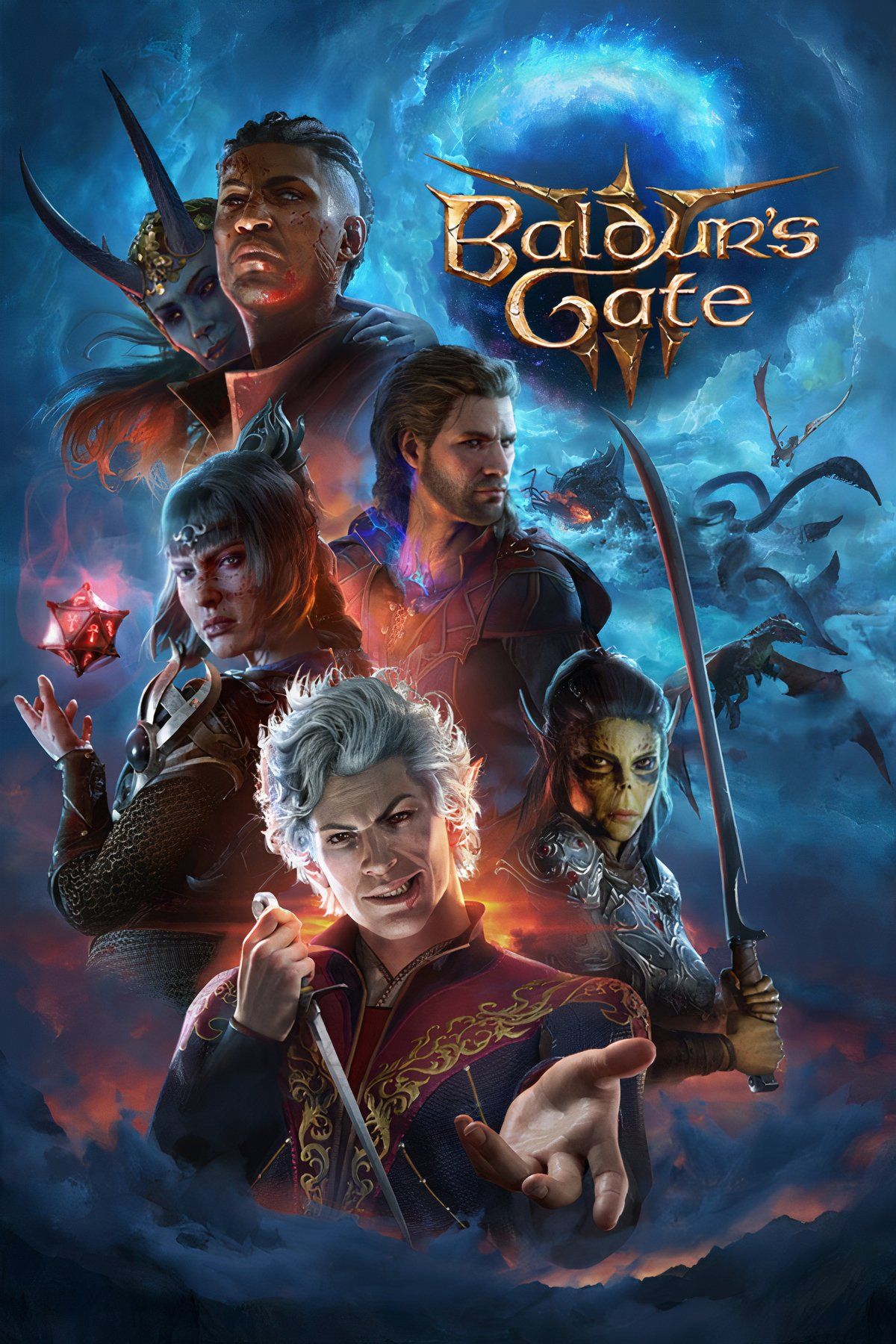Baldur’s Gate 3 is filled with choices that shape the world and the fates of its characters. Among these, the story of Zevlor stands out as particularly devastating. A Tiefling Paladin and former Hellrider of Elturel, Zevlor’s journey is one of resilience, sacrifice, and the unbearable weight of failure. Despite his efforts to protect his people, the tragic consequences of his entanglement with the Absolute make his death one of the game’s most emotionally charged moments.
Zevlor’s arc in Baldur’s Gate 3 is not only a reflection of the challenges that refugees face in a world that rejects them, but also a pointed commentary on manipulation and the corrupting nature of power. Even those with unwavering convictions are vulnerable when their hope is weaponized against them. Through Zevlor, Larian Studios effectively explores how trauma and desperation can push even the most righteous to their breaking point.

Related
Baldur’s Gate 3’s Karlach actor Samantha Béart speaks on the use of generative AI in video game development.
Baldur’s Gate 3 Highlights Consequences of Leadership
At the heart of Zevlor’s tragedy is the burden of leadership. As the leader of a displaced people, Zevlor’s decisions are shaped by the constant pressure to ensure their survival. His past as a Hellrider further complicates this role. Once sworn to protect Elturel, he was forced to watch the city descend into Avernus. The guilt of surviving when so many others perished haunts him, driving his determination to keep the Tieflings safe at any cost.
When the Absolute’s influence seeps into the lives of those around him, Zevlor becomes a victim of its manipulative grasp. His enthrallment is not a product of malice or weakness but of layered psychological trauma. The narrative makes it clear that no one is immune to the seductive promise of relief from suffering. Despite the player’s best efforts, Zevlor’s death may still occur — a grim reminder of how even the most heroic figures can fall.
The Hellriders, once a symbol of Zevlor’s proud past, become a painful reminder of what he has lost. Even in a scenario where he survives, the burden of his choices lingers. Yet, if he dies, it’s not simply the loss of a leader but the extinguishing of a spirit that once stood tall against unimaginable odds.
The Emotional Impact of Zevlor’s Fate in Baldur’s Gate 3
Zevlor’s death resonates deeply because it is a culmination of failed attempts at redemption. If the player cannot intervene in time, he may die at the hands of Orin the Red, sacrificed in a twisted display of power. This outcome is particularly brutal given Zevlor’s constant struggle to maintain his moral compass. The game’s refusal to offer a purely victorious path reinforces the weight of its choices, ensuring that every loss is felt.
The survivors’ reactions to Zevlor’s death further emphasize the tragedy. Asharak or Cerys may step into the role of leader, but the void left by Zevlor is palpable. His death serves as a painful acknowledgment that no matter how noble one’s intentions, the consequences of past failures often echo long after. The lack of complete resolution for his character adds to the realism of Baldur’s Gate 3’s storytelling, underscoring that closure is not always attainable.
Zevlor’s legacy is also reflected in the shifting dynamics of the Tiefling refugees. While Asharak may lead with a more hardened resolve, and Cerys provides a gentler form of guidance, neither can truly replace Zevlor’s presence. For players, this loss is particularly poignant, as it’s a reminder that heroism is not always enough to shield others from harm.

Related
Baldur’s Gate 3 director Swen Vincke provides thoughtful commentary on the claim that single-player games are dead within the industry.
Larian Studios’ Approach to Narrative and Morality
Larian Studios has crafted Baldur’s Gate 3 with a commitment to morally complex storytelling. Zevlor’s downfall is not merely a plot device, but a reflection of the game’s central themes. His story forces players to confront the reality that good intentions can still lead to devastating outcomes. Through the lens of player agency, the developers highlight the unpredictability of leadership and the emotional toll it takes.
Moreover, the community’s divided response to Zevlor’s actions reveals another layer of the game’s impact. While some condemn his perceived failures, others empathize with his impossible circumstances. The absence of a clear moral judgment from the game encourages players to grapple with their own interpretations, a hallmark of Larian’s narrative design.
It’s also worth noting how the game’s design intentionally withholds the full scope of the Absolute’s manipulation from many of the NPCs. Unlike the player, who gains an intimate understanding of the cult’s influence, Zevlor and others are left without the same clarity. This deliberate narrative choice emphasizes how easily fear and desperation can cloud judgment. For players, it serves as a humbling reminder that those who fall victim to manipulation are not inherently weak — they are often just human.
In the end, Zevlor’s fate is a reminder that Baldur’s Gate 3 is not a game about winning or losing. It is about the people players meet, the choices they make, and the stories they carry with them. Through Zevlor, the game captures the devastating truth that even the most valiant efforts may not be enough — and that is what makes his potential death so profoundly tragic.

- Released
-
August 3, 2023
- ESRB
-
M for Mature: Blood and Gore, Partial Nudity, Sexual Content, Strong Language, Violence












Leave a Reply